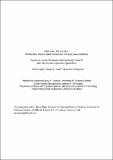Fake news, fast and slow: Deliberation reduces belief in false (but not true) news headlines
Author(s)
Rand, David Gertler
DownloadAccepted version (144.8Kb)
Open Access Policy
Open Access Policy
Creative Commons Attribution-Noncommercial-Share Alike
Terms of use
Metadata
Show full item recordAbstract
What role does deliberation play in susceptibility to political misinformation and "fake news"? The Motivated System 2 Reasoning (MS2R) account posits that deliberation causes people to fall for fake news, because reasoning facilitates identity-protective cognition and is therefore used to rationalize content that is consistent with one's political ideology. The classical account of reasoning instead posits that people ineffectively discern between true and false news headlines when they fail to deliberate (and instead rely on intuition). To distinguish between these competing accounts, we investigated the causal effect of reasoning on media truth discernment using a 2-response paradigm. Participants (N 1,635 Mechanical Turkers) were presented with a series of headlines. For each, they were first asked to give an initial, intuitive response under time pressure and concurrent working memory load. They were then given an opportunity to rethink their response with no constraints, thereby permitting more deliberation. We also compared these responses to a (deliberative) 1-response baseline condition where participants made a single choice with no constraints. Consistent with the classical account, we found that deliberation corrected intuitive mistakes: Participants believed false headlines (but not true headlines) more in initial responses than in either final responses or the unconstrained 1-response baseline. In contrast-and inconsistent with the Motivated System 2 Reasoning account-we found that political polarization was equivalent across responses. Our data suggest that, in the context of fake news, deliberation facilitates accurate belief formation and not partisan bias.
Date issued
2020-08Department
Sloan School of Management; Massachusetts Institute of Technology. Department of Brain and Cognitive SciencesJournal
Journal of Experimental Psychology: General
Publisher
American Psychological Association (APA)
Citation
Bago, Bence et al. “Fake news, fast and slow: Deliberation reduces belief in false (but not true) news headlines.” Journal of Experimental Psychology: General, 129, 8 (August 2020): 1608-1613 © 2020 The Author(s)
Version: Author's final manuscript
ISSN
0096-3445